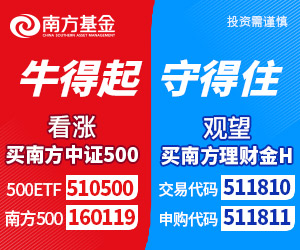Primary endpoint defined as the proportion of patients who achieved confirmed CMV viremia clearance at the end of Study Week 8
OSAKA, Japan -- (BUSINESS WIRE) --
Takeda Pharmaceutical Company Limited (TSE:4502/NYSE:TAK) (“Takeda”) today announced top-line results from the Phase 3 clinical trial evaluating the efficacy and safety of the investigational drug TAK-620 (maribavir), in the treatment of transplant recipients with refractory/resistant cytomegalovirus (CMV) infection. The TAK-620-303 (SOLSTICE) trial (NCT02931539) is a multicenter, randomized, open-label, active-controlled trial comparing eight weeks of treatment with either maribavir or investigator assigned treatment (IAT) in transplant recipients with CMV infection refractory or resistant to existing antiviral treatments (i.e., one or a combination of ganciclovir, valganciclovir, foscarnet or cidofovir).
The SOLSTICE trial met its primary endpoint, defined as the proportion of patients who achieved confirmed CMV viremia clearance compared to IAT at the end of Study week 8. In addition, the SOLSTICE trial met its key secondary endpoint, defined as achievement of CMV viremia clearance and symptom control at end of week 8, and maintained through week 16. No new safety signals were identified and maribavir was associated with lower incidence of neutropenia compared to IAT. Takeda plans to submit the SOLSTICE data for presentation at an upcoming scientific meeting.1
“Achieving the primary endpoint of the SOLSTICE trial is an exciting new development in the search for a treatment for transplant recipients with refractory/resistant CMV infection. Today, transplant patients who do not respond or experience adverse events related to existing therapies may be at higher risk for complications from the virus, including transplant failure and death. Maribavir has the potential to redefine management of post-transplant CMV infections by helping patients clear the virus with less treatment limiting toxicities,” said Obi Umeh, MD, Vice President and Maribavir Global Program Leader, Takeda. “We look forward to discussing these data with global health authorities including the U.S. Food and Drug Administration and European Medicines Agency as we work to bring maribavir to patients.”
About CMV
CMV is a beta herpesvirus that commonly infects humans; serologic evidence of prior infection can be found in 40-100% of various adult populations.2 However, serious disease may occur in individuals with compromised immune systems, which includes patients who received immunosuppressants associated with various types of transplants including hematopoietic stem cell transplants (HSCT) or solid organ transplants (SOT).3 CMV is a ubiquitous virus that typically resides latent and asymptomatic in the body but reactivates during periods of immunosuppression.3,4 Out of the estimated 200,000 adult transplants per year, CMV is one of the most common viral infections experienced by transplant recipients, with an estimated incidence rate of around 8-75% in SOT recipients and 5-30% in HSCT recipients.4-8
In transplant recipients, reactivation of CMV can lead to serious consequences including loss of the transplanted organ and, in extreme cases, can be fatal.9,10 Existing therapies to treat post-transplant CMV infections may demonstrate toxicities that require dose-adjustments, need hospitalization for administration, or may fail to adequately suppress viral replication.11-13
About Maribavir
Maribavir, an orally bioavailable anti-CMV compound, is the only antiviral agent presently in Phase 3 development for the treatment of post-transplant patients with CMV in SOT or HSCT. Maribavir is an investigational treatment that has not been approved for use by the U.S. Food and Drug Administration (FDA), European Medicines Agency (EMA) or any other regulatory authorities.
Maribavir has been granted Orphan Drug Designation by the European Commission as a treatment of CMV disease in patients with impaired cell mediated immunity and by the FDA for treatment of clinically significant CMV viremia and disease in at-risk patients. Orphan status is granted to certain investigational medicines intended for the treatment or prevention of a rare, life-threatening disease. The FDA has also granted maribavir Breakthrough Therapy Designation as a treatment for CMV infection and disease in transplant patients resistant or refractory to prior therapy. Breakthrough Therapy Designation expedites the development and review of investigational treatments for serious conditions with preliminary clinical evidence indicating that the drug may demonstrate substantial improvement over available therapy. These designations do not guarantee that the EMA or FDA will approve maribavir for the treatment of CMV infections in transplant patients, and the timing of any such approval is uncertain.
About Takeda’s Maribavir Phase 2 Study
In the Phase 2 study in HSCT and SOT recipients with CMV infections refractory or resistant to ≥1 existing anti-CMV antiviral agents (valganciclovir, ganciclovir, or foscarnet), dysgeusia described as metallic or bitter tastes was the most common adverse event, followed by nausea, vomiting and diarrhea. Neutropenia was reported in 11% and renal impairment in 16% of patients.14
About Takeda Pharmaceutical Company Limited
Takeda Pharmaceutical Company Limited (TSE:4502/NYSE:TAK) is a global, values-based, R&D-driven biopharmaceutical leader headquartered in Japan, committed to bringing Better Health and a Brighter Future to patients by translating science into highly-innovative medicines. Takeda focuses its R&D efforts on four therapeutic areas: Oncology, Rare Diseases, Neuroscience, and Gastroenterology (GI). We also make targeted R&D investments in Plasma-Derived Therapies and Vaccines. We are focusing on developing highly innovative medicines that contribute to making a difference in people's lives by advancing the frontier of new treatment options and leveraging our enhanced collaborative R&D engine and capabilities to create a robust, modality-diverse pipeline. Our employees are committed to improving quality of life for patients and to working with our partners in health care in approximately 80 countries. For more information, visit https://www.takeda.com.
Important Notice
For the purposes of this notice, “press release” means this document, any oral presentation, any question and answer session and any written or oral material discussed or distributed by Takeda Pharmaceutical Company Limited (“Takeda”) regarding this release. This press release (including any oral briefing and any question-and-answer in connection with it) is not intended to, and does not constitute, represent or form part of any offer, invitation or solicitation of any offer to purchase, otherwise acquire, subscribe for, exchange, sell or otherwise dispose of, any securities or the solicitation of any vote orapproval in any jurisdiction. No shares or other securities are being offered to the public by means of this press release. No offering of securities shall be made in the United States except pursuant to registration under the U.S. Securities Act of 1933, as amended, or an exemption therefrom. This press release is being given (together with any further information which may be provided to the recipient) on the condition that it is for use by the recipient for information purposes only (and not for the evaluation of any investment, acquisition, disposal or any other transaction). Any failure to comply with these restrictions may constitute a violation of applicable securities laws.
The companies in which Takeda directly and indirectly owns investments are separate entities. In this press release, “Takeda” is sometimes used for convenience where references are made to Takeda and its subsidiaries in general. Likewise, the words “we”, “us” and “our” are also used to refer to subsidiaries in general or to those who work for them. These expressions are also used where no useful purpose is served by identifying the particular company or companies.
Forward-Looking Statements
This press release and any materials distributed in connection with this press release may contain forward-looking statements, beliefs or opinions regarding Takeda’s future business, future position and results of operations, including estimates, forecasts, targets and plans for Takeda. Without limitation, forward-looking statements often include words such as “targets”, “plans”, “believes”, “hopes”, “continues”, “expects”, “aims”, “intends”, “ensures”, “will”, “may”, “should”, “would”, “could” “anticipates”, “estimates”, “projects” or similar expressions or the negative thereof. These forward-looking statements are based on assumptions about many important factors, including the following, which could cause actual results to differ materially from those expressed or implied by the forward-looking statements: the economic circumstances surrounding Takeda’s global business, including general economic conditions in Japan and the United States; competitive pressures and developments; changes to applicable laws and regulations; the success of or failure of product development programs; decisions of regulatory authorities and the timing thereof; fluctuations in interest and currency exchange rates; claims or concerns regarding the safety or efficacy of marketed products or product candidates; the impact of health crises, like the novel coronavirus pandemic, on Takeda and its customers and suppliers, including foreign governments in countries in which Takeda operates, or on other facets of its business; the timing and impact of post-merger integration efforts with acquired companies; the ability to divest assets that are not core to Takeda’s operations and the timing of any such divestment(s); and other factors identified in Takeda’s most recent Annual Report on Form 20-F and Takeda’s other reports filed with the U.S. Securities and Exchange Commission, available on Takeda’s website at: https://www.takeda.com/investors/reports/sec-filings/ or at www.sec.gov. Takeda does not undertake to update any of the forward-looking statements contained in this press release or any other forward-looking statements it may make, except as required by law or stock exchange rule. Past performance is not an indicator of future results and the results or statements of Takeda in this press release may not be indicative of, and are not an estimate, forecast, guarantee or projection of Takeda’s future results.
|
1 VV-MED-9909_Takeda DOF. TAK-620 303 Memorandum. November 2020. |
|
2 Krech U. Complement-fixing antibodies against cytomegalovirus in different parts of the world. Bull WHO. 1973;49:103-6. |
|
3 De la Hoz, RE., et al. Diagnosis and treatment approaches to CMV infections in adult patients. J Clin Virol. 2002;S1-S12. |
|
4 Azevedo LS, Pierrotti LC, Abdala E, et al. Cytomegalovirus infection in transplant recipients. Clinics. 2015;70(7):515-523. |
|
5 World Health Organization. International Report on Organ Donation and Transplantation Activities. 2018. Accessed December 2, 2020. Available at: http://www.transplant-observatory.org/wp-content/uploads/2020/10/glorep2018-2.pdf. |
|
6 World Health Organization. Haematopoietic Stem Cell Transplantation HSCtx. Accessed on December 2, 2020. Available at: https://www.who.int/transplantation/hsctx/en/. |
|
7 Razonable RR, Eid AJ. Viral infections in transplant recipients. Minerva Med. 2009 Dec; 100(6):479-501. |
|
8 VV-MED-9910_Takeda DOF. Epidemiology of cytomegalovirus in solid organ transplant and hematopoietic stem cell transplant patients. February 2018. |
|
9 Fishman JA. Infection in organ transplantation. American Journal of Transplantation. 2017;17:856-879. |
|
10 Kenyon, Michelle, and Aleksandra Babic, editors. The European Blood and Marrow Transplantation Textbook for Nurses: under the Auspices of EBMT. Springer Open, 2018. |
|
11 Martín-Gandul C, Pérez-Romero P, González-Roncero FM, et al. Clinical impact of neutropenia related with the preemptive therapy of CMV infection in solid organ transplant recipients. J Infect. 2014; 69: 500-6. |
|
12 Chemaly RF, Chou S, Einsele H, et al. Clinical Infectious Diseases. 2019;68(8):1420-1426. |
|
13 Beyer K, Abboud M, Hambright K, et al. Biol Blood Marrow Transplant. 2017;S175 (220). |
|
14 Papanicolaou GA, Silveira FP, Langston AA, et al. Maribavir for refractory or resistant cytomegalovirus infections in hematopoietic-cell or solid-organ transplant recipients: a randomized, dose-ranging, double-blind, phase 2 study. Clin Infec Dis. 2019;68(8):1255-1264. |
View source version on businesswire.com: https://www.businesswire.com/news/home/20201204005214/en/
CONTACT:
Japanese Media
Kazumi Kobayashi
kazumi.kobayashi@takeda.com
+81 (0) 3-3278-2095
Media Outside Japan
Linda Calandra
linda.calandra1@takeda.com
+1 617 301 2092
责任编辑: admin
珠海都市网所有文字、图片、视频、音频等资料均来自互联网,不代表本站赞同其观点,本站亦不为其版权负责。相关作品的原创性、文中陈述文字以及内容数据庞杂本站无法一一核实,如果您发现本网站上有侵犯您的合法权益的内容,请联系我们,本网站将立即予以删除!

焦点新闻
热图要闻
热门排行
- PLDA宣布推出Robust Verification Toolset,以提
- Ludovic Blanquet Joins smartTrade as Chief Pro
- Wolters Kluwer FRR Launches OneSumX for Risk M
- 香港旅遊發展局訂立統一衞生防疫指引 向旅客傳遞
- Nanboya香港辦事處遷至佐敦,首個海外採購辦公室
- GSMA Announces Date Changes for its MWC21 Seri
- 罗克韦尔自动化收购网络安全公司
- Standard Digital Group Is Now Accepting Online
- Nanboya香港辦事處遷至佐敦,首個海外採購辦公室
- Standard Digital Group Is Now Accepting Online







